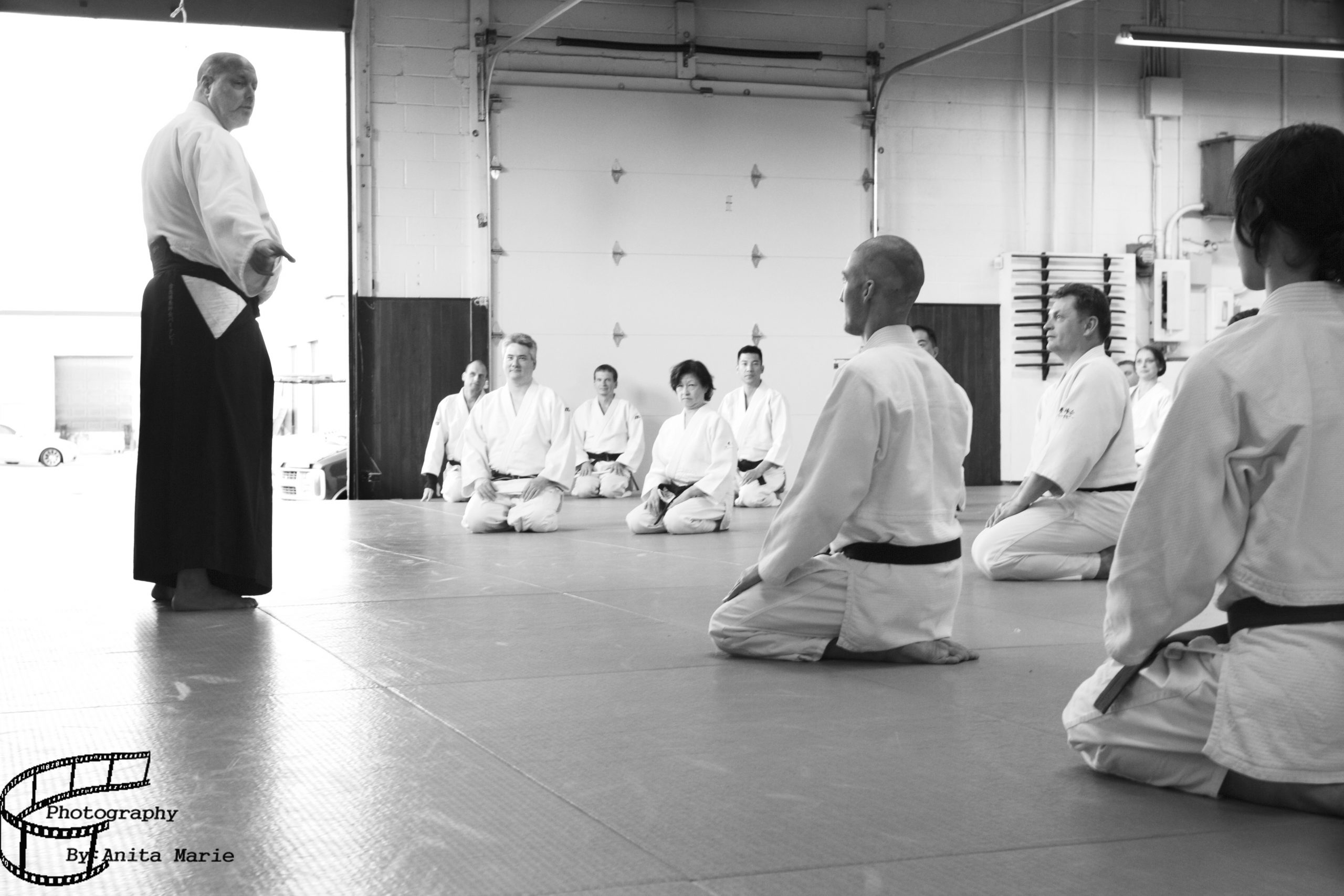Dojo Etiquette
Yoshinkan Aikido Dojo
Traditional Japanese wisdom is that the study of martial ways (Budo) begins and ends with etiquette. Simply stated, etiquette, in a dojo atmosphere, means that a person involved in the study of martial ways should always exhibit a high sense of self-control and seek to find new ways to increase that virtue.
It is no secret that the world today has many people who treat others as objects. In contrast, the dojo is a place where everyone should appreciate others and develop interpersonal relationships necessary to further knowledge in the art.
In today’s world, people can find themselves facing rudeness, disrespect aggression and anger on a daily basis. As a traditional Dojo, all the trappings of daily life are left outside. The 7 virtues of Budo are taught, reinforced and embedded within the techniques and the etiquette of a traditional Martial Art dojo. In the dojo an atmosphere of respect, humility, consideration, benevolence fidelity self-discipline and compassion has been developed. These virtues and others are embedded in the dojo environment and all aspect of training and dojo life. The training method teaches and reinforces these virtues in all students.
It is simply pleasant to study in an environment where people try hard to accommodate one another. Naturally, we are all human, and as such, inter-personal difficulties often surface.
Thus, it is in the way we deal with these personality difficulties in the dojo that makes the difference. Unless common respect for fellow students becomes a part of dojo life, the dojo ceases to be different from the outside world.
Few people would choose to spend hours of their lives in another heartless environment. So the dojo must be a different place benevolence must replace anger.
The cardinal rule of etiquette in the dojo is simple:
Consider others before you consider yourself. To do so it is necessary to understand that small things have great effect.
Over the years, many famous masters of martial arts said that if man could make the world his dojo, civilization would reap the benefits.
The dojo must be where kindness and understanding reign; It must be a refuge from the insensitivity of everyday life. The dojo must be a place of the way where values grow.
The dojo is a place where we are able to cast aside the mental entanglements of the world.
In the dojo, training takes precedence over worry. Consideration takes precedence over rudeness.
In many ways the dojo reflects the Spartan domain of the monk. There are few, if any, decorations adorning the walls. Cleanliness is more important than worldliness; quiet is more important than noise.


Aikido has many benefits.
Students will learn: centering, calming, confidence, cooperation, grounding, mindfulness, self regulation, self control.
Aikido is a “moving meditation” — it cultivates a meditative state of mind. Training can foster positive mental health, positive physical health / fitness, and good overall wellbeing.

